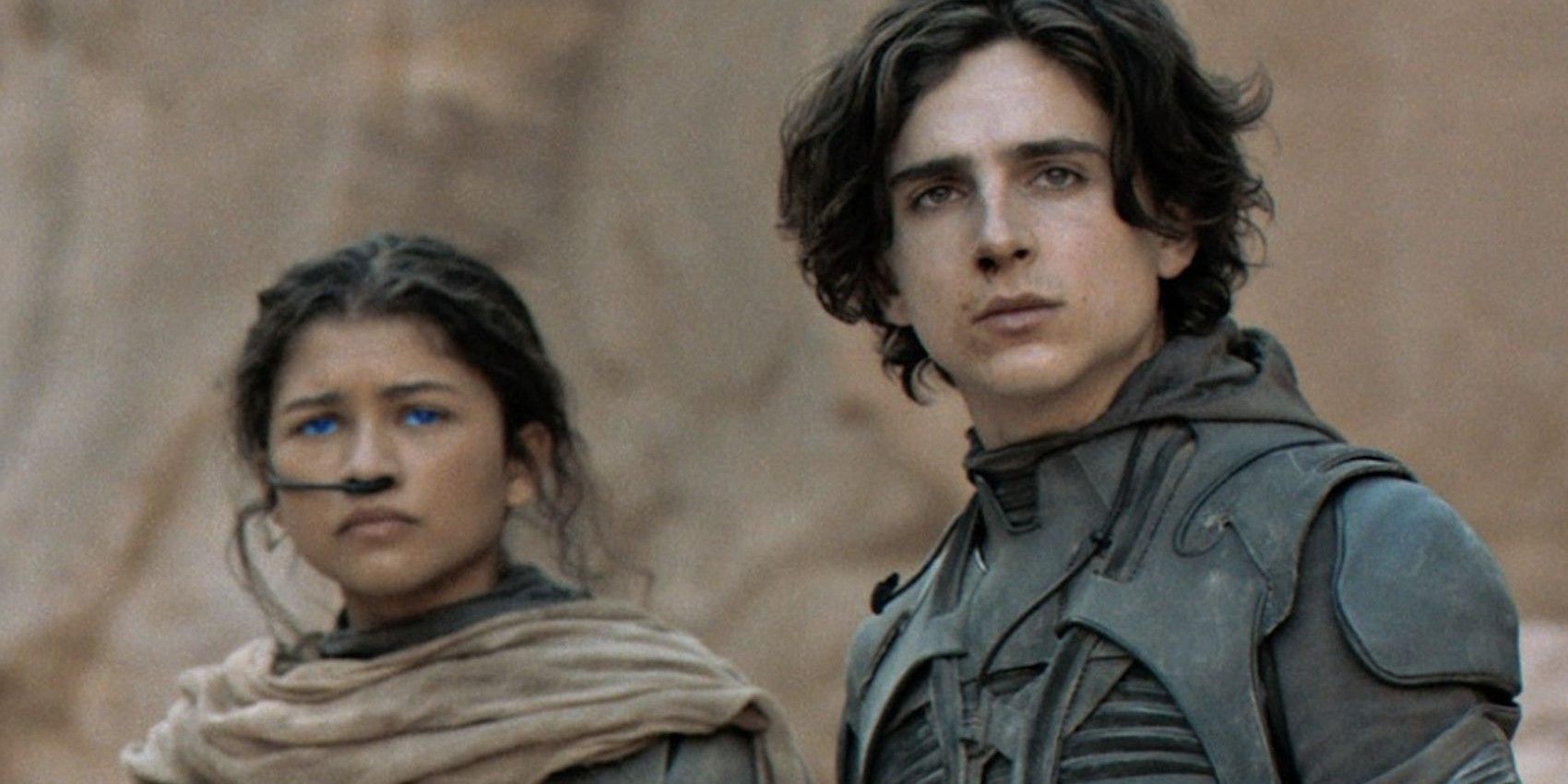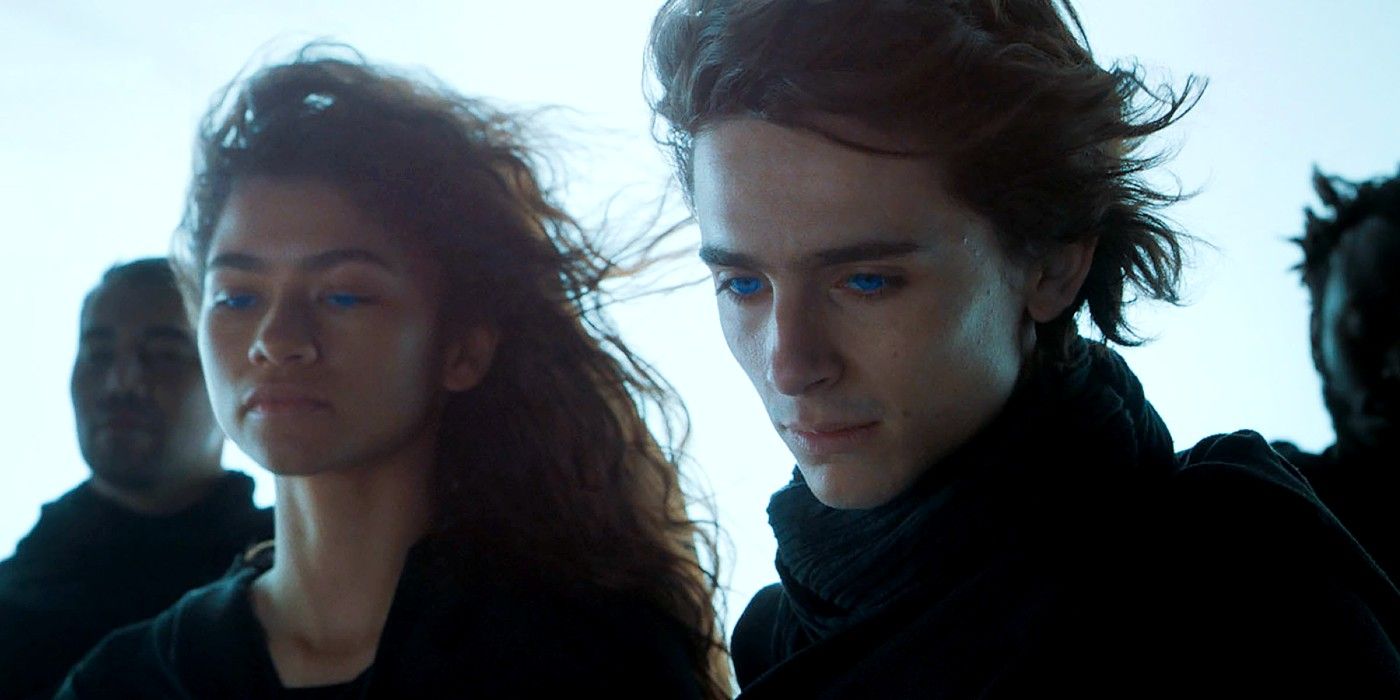
Denis Villeneuve almost ended his first Dune movie in a very different place. Thanks to Villeneuve, Dune fans now have an adaptation they can be proud of. Others have attempted to visualize Frank Herbert's seminal sci-fi novel in a live-action medium, but most fell short of capturing the full scope of Herbert's world. Villeneuve sought to change this by splitting Dune up into two parts; this way, he was able to take his time developing the desert planet of Arrakis and characters like chosen one Paul Atreides (Timothée Chalamet). Dune arrived in theaters and on HBO Max last month, and its impressive showing led Warner Bros. to greenlight a sequel days after its premiere.
As Villeneuve wasn't shy about his intention to make at least two Dune movies (the first has a title card that declares it Dune: Part 1), most audiences went into the film knowing it wouldn't have a conclusive ending. After two-and-a-half hours of intergalactic intrigue and world-building, the final moments of Dune find Paul setting out with the Fremen, the natives of Arrakis who have reluctantly welcomed Paul and his mother Jessica (Rebecca Ferguson) into their ranks. However, that wasn't always Villeneuve's chosen endpoint.
Speaking to Empire recently, Villeneuve talked about Dune's ending and how he decided where to split the story. Villeneuve revealed the chosen ending was his first instinct. However, he then briefly considered pushing it back a bit in Herbert's story. In the end, though, Villeneuve decided that didn't work as well. He explained:
My first intuition was to break there. And then we tried also to break it a bit later. Because in the book, there's a natural moment – there's like a two-year gap or something like that. But it didn't work out because it really felt like at the very end of two hours and a half, you were suddenly starting a new story – which is the one of Paul and Jessica being introduced to Fremen culture and being accepted by the Fremen. It was feeling like the beginning of a new chapter, which felt very heavy at the end of the- I'm 100% positively convinced that we stuck at the right moment, where we finally feel that Paul has [gone] from being a boy to an adult, and having all this arc of this first part completed.

Though some might be disappointed in where Dune cuts off, it's actually the perfect conclusion for Part 1. If the first movie was intended to introduce Paul and upend his world, the movie does that. He starts in one place and ends in a drastically different one. Villeneuve makes it clear that there is still a lot ahead for Paul, but by ending Dune right as he joins the Fremen, he signals that the first part of his journey is at an end. Paul is in a transition stage, and in a way, the audience is too as they wait for the rest of the story.
If Villeneuve had waited for the 2-year time jump, fans likely would've been a lot more irritated by the idea of waiting for Dune: Part 2. He was right in thinking it would essentially start another story he had no intention of telling for another few years. It's better to leave off at a natural transition point for Paul and leave viewers satisfied by the journey that's already happened, butalso excited to see what's coming next. Thankfully, they will get to see what's coming next when the Dune sequel arrives in just two years. In the meantime, there's also the actual book for those uninterested in waiting.
Source: Empire
from ScreenRant - Feed https://ift.tt/3CrDart

0 Comments